Tricycle has long been known for publishing interviews with Buddhist masters and prominent figures within the world of Buddhadharma, but we have also always been interested in the views and experiences of practitioners that may not be as well known. The greater Buddhist Sangha does not begin and end with its leaders.
In the early years of Tricycle there were several installments of a series called What does Being a Buddhist Mean to you?, in which a wide variety of people would offer their views on an issue. While it was a successful and popular part of the magazine, this series eventually ran its course and was discontinued. At the end of 2009, What Does Being a Buddhist Mean to You? was reborn as This Buddhist Life. In this newer incarnation, the focus is not on assembling a variety of views all at once, but instead on going a bit deeper into the lives of individual practitioners from all walks of life. So far, we have interviewed a dancer/bartender, a sports psychologist, a poet, a student, a chef, a university chancellor, and an abbot. I am very happy to now present all of these interviews together, for the first time.
 Serena Edwards
Serena Edwards
contemporary dancer/bartender
Age: 28
Location: New York City
“The idea of just telling the truth all the time can be iffy, since the truth changes so often. But I think being brutally honest with yourself about your intentions and what is really motivating you in any given situation is very important. Hopefully that awareness can encourage some discipline around what you say and do.”
Read the whole interview here.
George Mumford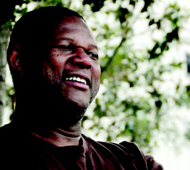
sports-psychology consultant for the Boston College men’s basketball team and LA Lakers meditation coach
Age: 59
Location: Newton Upper Falls, Massachusetts
“I think we do ourselves a disservice when we predicate everything on this dualistic approach of sitting practice and then the rest of life. I think we’re limiting what meditation means. Dr. Dre says in one of his songs, “I got my mind on my money and my money on my mind”; whatever is on your mind, that’s your meditation.”
Read the whole interview here.
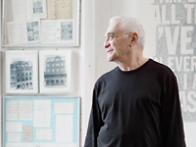 John Giorno
John Giorno
Profession: Poet
Age : 73
Location: NYC
“When I first went to India, I had no idea what I was doing, it was almost out of desperation, in terms of taming one’s mind, and there was no precedent. In the passing of these forty years dharma has so changed, and it’s accessible in a wonderful way, so that people who are interested don’t have to go through enormous torture; they can just follow their propensity to whatever teaching is available to everyone. I think that’s a great accomplishment.”
Read the whole interview here.
Wendell Garnett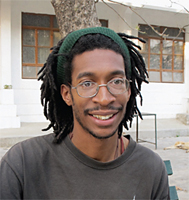
Profession: student
Age: 32
Location: Dharamsala, India
“When I first started reading about Buddhism I thought, If I want to be good at this stuff I need to know what’s going on. I have to read it in its original language, not just taking it because someone said so—I wanted to know how everything was fitting together. I mean, Buddha even said, Don’t take my word for it. If you agree, you agree; if you don’t, you have to understand your reasons why you don’t. So that’s why I started studying Tibetan.”
Read the whole interview here.
 Eric Ripert
Eric Ripert
Profession: French Chef
Age: 45
“The challenge is that the kitchen world is a hardcore environment and has a certain tradition of being tough. I’m trying to change that, and I think we have done a tremendous amount of work collectively with the team to change that sort of tough atmosphere and make it a more convivial atmosphere. But to fight toughness, I cannot be tough to the guy who is tough; I have to be kind to the guy who is tough. So it takes longer, but I get a better result.”
Read the whole interview here.
Dasho Pema Thinley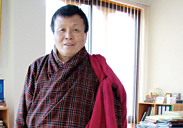
Profession: Vice Chancellor of the
Royal University of Bhutan
Age: 60
Location: Bhutan
“I see Buddhism as more of a philosophy because religion has to do with a person, a central figure. While the historical Buddha is a person, in Buddhism we say that all beings have buddhanature and they have the potential to achieve buddhahood.”
Read the whole interview here.
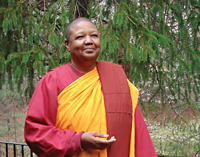 Venerable Pannavati Karuna
Venerable Pannavati Karuna
Profession: Co-Abbot, Embracing Simplicity Hermitage; Founder of My Place
Age: 60
Location: Hendersonville, North Carolina
“After becoming a Theravada nun I began to look around me—I could really see the patriarchal aspect of institutionalized Buddhism, and I became very disenchanted with it, I saw that this was the same system as institutional Christianity. When the masters come to the West from the East they bring what good they have to share with the world, but it’s wrapped in culturalism. I had been on a spiritual path my whole life. Still, the teachers want to take you back to grade school—“Let me dress you like me.” Why should I learn Tibetan? I’m not Tibetan. Why should I learn Chinese? I’m not Chinese. Why should I speak Pali? The Buddha didn’t even speak it. I needed to walk my own path, so I just did what I felt that I had to do, and I found support from senior Thai monks and Western nuns to convene the platform.”
Read the whole interview here.
Thank you for subscribing to Tricycle! As a nonprofit, we depend on readers like you to keep Buddhist teachings and practices widely available.